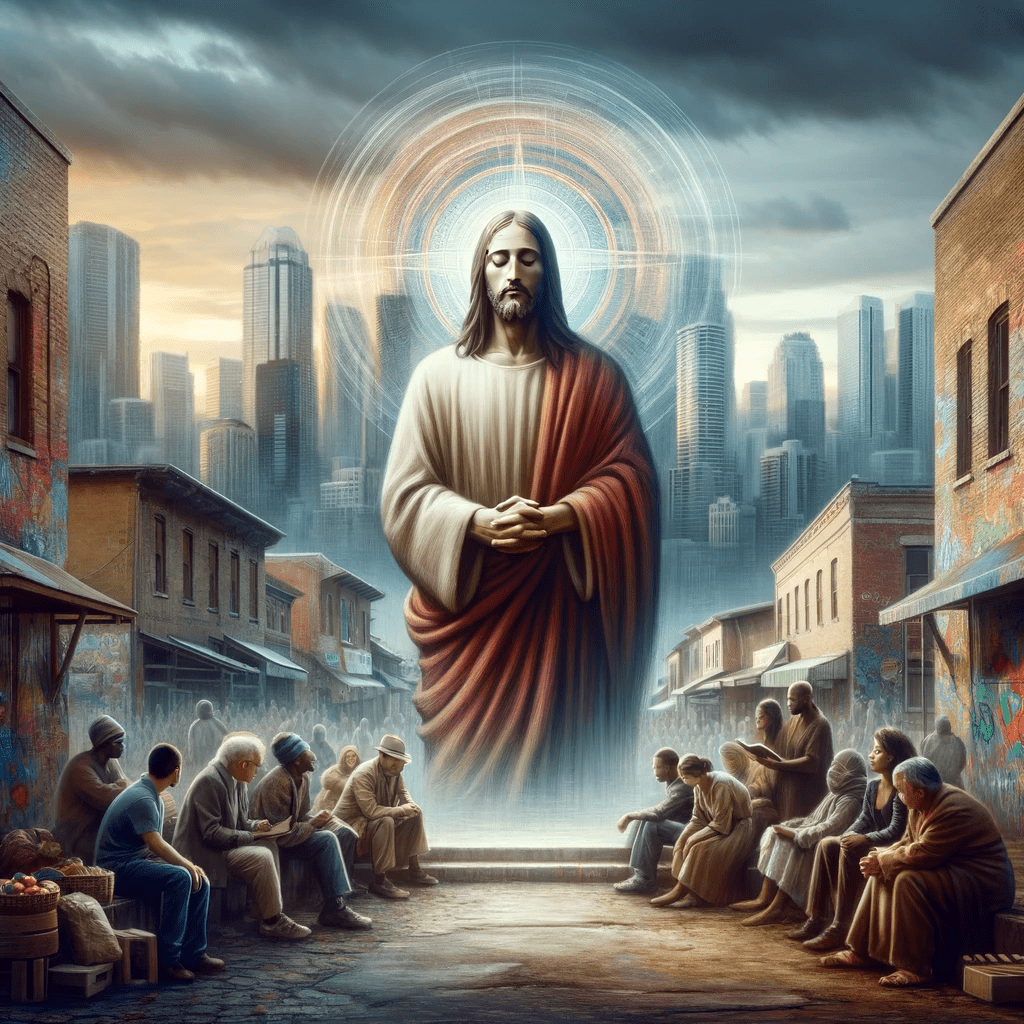
Scorsese's Jesus: A Modern Messiah or a Misstep?
Gary Whittaker, Scorsese's planned film invites pre-emptive reflection. It promises to act as a thought-provoking mirror, urging both believers and skeptics to reconsider Jesus' role amidst modern challenges.
Unveiling Endō’s Jesus: A Contrast to Contemporary Narratives Endō's empathetic portrayal of Jesus, likely central to Scorsese's adaptation, stands as a counterpoint to the often rigid narratives found in today's Christian Nationalism. This portrayal is expected to challenge viewers to rediscover the essence of Christ's teachings - compassion and understanding transcending political and cultural barriers. The film is anticipated to offer a portrayal of Jesus that resonates with the core human experiences, prompting a reexamination of faith as a unifying, rather than divisive, force.
From 'Last Temptation' to 'Modern Messiah': Scorsese's Evolving Faith Journey Reflecting on Scorsese's past religious films, particularly "The Last Temptation of Christ," provides context for his upcoming project. His previous works, marked by controversy and deep spiritual inquiry, suggest an evolving perspective on religious themes. This journey, mirroring the spiritual quests of many, highlights the multifaceted nature of faith in the modern era.
Reimagining Jesus Today: A Bridge Over Ideological Divides Today's world, fractured by deep ideological divides, from the looming threat of civil unrest in America to the ongoing conflict in Israel, sets a poignant stage for Scorsese's film. His portrayal of a contemporary Jesus is expected to serve as a bridge, fostering dialogue and understanding in a time of turmoil. The film could offer a fresh perspective on Jesus' teachings, encouraging a reflection on their relevance in addressing today's most pressing issues, including war, social injustice, and division.
Christian Nationalism's Rise and Its Global Implications The ascent of Christian Nationalism, particularly in the United States, with significant rollbacks on issues like immigration, abortion, and education, presents a critical backdrop for Scorsese's project. These developments, seen by some as a return to 'prophesied' times, provide a real-world context that may influence the film's reception and interpretation. This section of the film could prompt viewers to discern the essence of their faith amidst these unfolding events and to consider the role of Christian teachings in shaping public policy and societal norms.
In the midst of these discussions, the enduring wisdom of Jesus' teachings offers a beacon of hope and guidance. As Scorsese ventures to retell these ancient stories, let us consider how these teachings can be applied to our current challenges, using modern language and contexts to breathe new life into timeless wisdom.
-
"Blessed are the peacemakers, for they will be called children of God." (Matthew 5:9) In a world torn by conflict, from the streets of America to the turmoil in Israel, this call for peace takes on new urgency. It speaks to those working tirelessly to bridge divides, whether in community reconciliation efforts, international diplomacy, or fostering understanding within fractured societies.
-
"Love your neighbor as yourself." (Mark 12:31) This fundamental commandment transcends time and culture. In our modern world, it could mean advocating for fair and compassionate immigration policies, supporting the rights and dignity of all individuals, regardless of their background, or simply extending kindness and understanding to those around us, especially in times of divisive rhetoric.
-
"For I was hungry and you gave me something to eat, I was thirsty and you gave me something to drink, I was a stranger and you invited me in." (Matthew 25:35) Today, this could be seen in the context of global humanitarian crises, the response to refugees and displaced individuals, and the fight against poverty and inequality. It's a call to action, urging individuals and communities to respond with compassion and aid to those in need, both locally and globally.
-
"Let the one among you who is without sin be the first to cast a stone." (John 8:7) In our current climate of heightened judgement and cancel culture, this teaching invites introspection and humility. It challenges us to look beyond the faults of others, to understand and forgive, recognizing our own imperfections.
-
"The truth will set you free." (John 8:32) In an era of misinformation and half-truths, this statement emphasizes the importance of seeking and upholding truth. It calls for integrity in journalism, honesty in political discourse, and the courage to confront falsehoods in our daily interactions.
By reimagining Jesus' teachings in the context of today's world, we are reminded of their timeless relevance and power. Scorsese's upcoming adaptation of "A Life of Jesus" has the potential to not only retell an ancient story but to inspire us to apply these teachings in our modern lives, fostering a world more reflective of the compassion, understanding, and love that Jesus championed.
